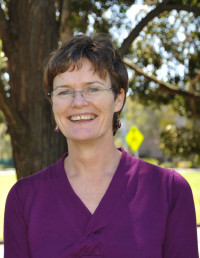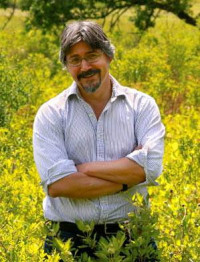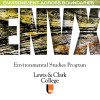2014 Keynote Event & Speakers
This year’s keynote event will be held Tuesday Oct. 14 starting at 7 pm in the Ecotrust Natural Capital Center in downtown Portland. The evening will launch with a brief, provocative video on the Anthropocene (also below), which will frame remarks by our two keynotes, Lesley Head and Paul Robbins, and a lively discussion with the audience. The audience will ask questions and post observations via a live Twitter feed (#lcenvs); some live questions will also be included. A catered reception will follow. Transportation to and from the event will be provided for Lewis & Clark students.
Lesley Head - “The Anthropoceneans”
I will reflect on what it means to be a citizen of the Anthropocene. Defined by its proponents as characterized by rapid, unpredictable change at planetary scales, the Anthropocene promises a world that has been shaped by human activity but is now threatening to spiral out of human control. What kinds of subjects are we, will we be, and will we need to be? What kinds of characteristics, sensibilities and capacities will work best in a world for which we have no past or present analogues? And how will/might/should these differ from the Holoceneans and the Moderns?

Lesley Head’s long-term research fascination is human-environment relations, both conceptual and material. She wants to understand how humans have physically changed earth’s systems, how we think about our place in nature, and how these two things are connected. She has a particular focus on humans and plants. In recent years she has worked mostly in cultural geography, with projects on backyard gardens, wheat and invasive plants. This developed from her earlier interest in Aboriginal land use, ethnobotany and fire. She started her research career using palaeoecology and archaeology to study long term changes in the Australian landscape, and the interactions of prehistoric peoples with their environments. Today she is building on this multidisciplinary background in the Australian Centre for Cultural Environmental Research (AUSCCER), where a team of scholars is applying cultural research methods to the pressing issues of sustainability and climate change.
Paul Robbins - “Learning from frogs and weeds: Surprise, serendipity, and epiphany in the Anthropocene”
What makes the possibility of a world of heavy human influence so depressing? I argue that among the many reasons people face the Anthropocene with anxiety is a dreadful sense that a human-influenced Earth will suffer from knowableness, an unbearable condition where the mysteries of the wild world have been flattened by a rigid sameness born of human design. Yet, by presenting two examples of Earth systems undergoing anthropogenic change, I point to the enormous, unexpected, and arguably exciting surprises that novel ecosystems and unpredictable human-nature interactions can provide. There are both bad and good surprises ahead, if we only choose to look for them.

Paul Robbins is the director of the Nelson Institute for Environmental Studies at the University of Wisconsin-Madison and holds a master’s degree and doctorate in geography from Clark University. His research addresses conservation conflicts, urban ecology, and environment and health interactions, but especially focuses on the ecological and economic values that emerge from human-influenced and human-created landscapes. His current research examines biodiversity (frogs, birds and mammals) in commercial coffee and rubber plantations throughout south India. Robbins has also led national studies on consumer chemical risk behaviors and American lawns. His award-winning book Lawn People: How Grasses, Weeds, and Chemicals Make Us Who We Are is widely recognized as one of the most accessible books on the environmental politics of daily life.
Environmental Studies is located in room 343A of John R. Howard Hall on the Undergraduate Campus.
MSC: 62
email envs@lclark.edu
voice 503-768-7790
fax 503-768-7620
Symposium Advisor Jessica Kleiss
Environmental Studies
Lewis & Clark
615 S. Palatine Hill Road MSC 62
Portland OR 97219
